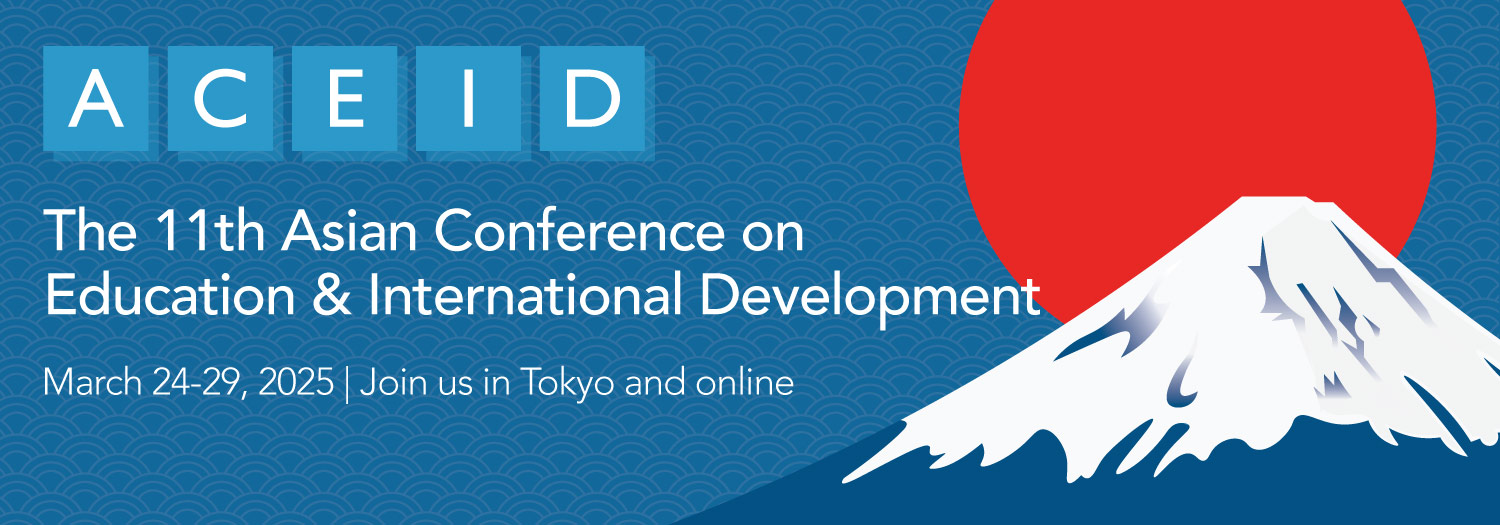Conference Outline
13:00-16:00: Pre-Conference Cultural Tour
This is an optional ticketed event
17:00-19:00: Welcome Reception & Check-in | The Public Red Akasaka
Conference Venue: Toshi Center Hotel
10:00-11:00: Conference Check-in & Coffee | Subaru Room (5F)
11:00-11:05: Announcements | Orion Hall (5F)
11:05-11:30: Welcome Address & Recognition of IAFOR Scholarship Winners | Orion Hall (5F)
Joseph Haldane, The International Academic Forum (IAFOR), Japan
11:30-12:15: Keynote Presentation | Orion Hall (5F)
12:15-12:30: Conference Photograph | Orion Hall (5F)
12:30-13:45: Lunch Break
13:45-14:30: Keynote Presentation | Orion Hall (5F)
14:30-15:30: Keynote Presentation | Orion Hall (5F)
15:30-16:00: Extended Coffee Break | Subaru Room (5F)
16:00-17:00: Conference Poster Session 1 | Orion Hall (5F)
19:00-21:00: Conference Dinner | Shunju Tameikesanno
This is an optional ticketed event
Conference Venue: Toshi Center Hotel
09:15-09:45: Conference Check-in & Coffee | Subaru Room (5F)
09:45-10:00: Announcements & Welcome Address | Orion Hall (5F)
10:00-10:45: Keynote Presentation | Orion Hall (5F)
10:45-11:15: Keynote Presentation | Orion Hall (5F)
11:15-11:45: Featured Presentation | Orion Hall (5F)
11:45-13:00: Lunch Break
13:00-13:30: Featured Presentation | Orion Hall (5F)
13:30-14:00: Keynote Presentation | Orion Hall (5F)
14:00-15:00: Moderated Panel Discussion | Orion Hall (5F)
15:00-15:30: Extended Coffee Break
15:30-16:30: Conference Poster Session 2 | Orion Hall (5F)
Conference Venue: Toshi Center Hotel
08:30-09:15: Conference Check-in & Coffee | 6F
09:15-10:55: Onsite Parallel Session 1
10:55-11:10: Coffee Break
11:10-12:50: Onsite Parallel Session 2
12:50-13:05: Coffee Break
13:05-14:20: Onsite Parallel Session 3
14:20-14:35: Coffee Break
14:35-16:15: Onsite Parallel Session 4
16:30-18:10: Coffee Break
16:30-18:10: Onsite Parallel Session 5
Conference Venue: Toshi Center Hotel
08:30-09:15 Conference Check-in & Coffee | 6F
09:15-10:55: Onsite Parallel Session 1
10:55-11:10: Coffee Break
11:10-12:50: Onsite Parallel Session 2
12:50-13:05: Coffee Break
13:05-14:45: Onsite Parallel Session 3
14:45-15:00: Coffee Break
15:00-16:40: Onsite Parallel Session 4
Conference Venue: Online via Zoom
07:55-08:00: Message from IAFOR
08:00-08:45: Keynote Presentation
08:45-09:00: Break
09:00-10:40: Online Parallel Session 1
10:40-10:50: Break
10:50-12:30: Online Parallel Session 2
12:30-12:40: Break
12:40-14:20: Online Parallel Session 3
14:20-14:30: Break
14:30-16:10 Online Parallel Session 4
16:25-16:30: Message from IAFOR
*Please be aware that the above schedule may be subject to change.
Important Information Emails
All registered attendees will receive an Important Information email and updates in the run-up to the conference. Please check your email inbox for something from "iafor.org". If you can not find these emails in your normal inbox, it is worth checking in your spam or junk mail folders as many programs filter out emails this way. If these did end up in one of these folders, please add the address to your acceptable senders' folder by whatever method your email program can do this.
Conference Programme & Abstract Book
The draft version of the Conference Programme will be available online on February 10, 2025. All registered delegates will be notified of this publication by email.
The Conference Programme & Abstract Book will contain session information and a detailed day-to-day presentation schedule. The final schedule, along with details on how to access the online sessions and what to prepare for your presentation, will be available on the Conference Website from February 10, 2025.
Featured Presentations
Featured Speakers
Previous Programming
View details of programming for past ACEID conferences via the links below.
